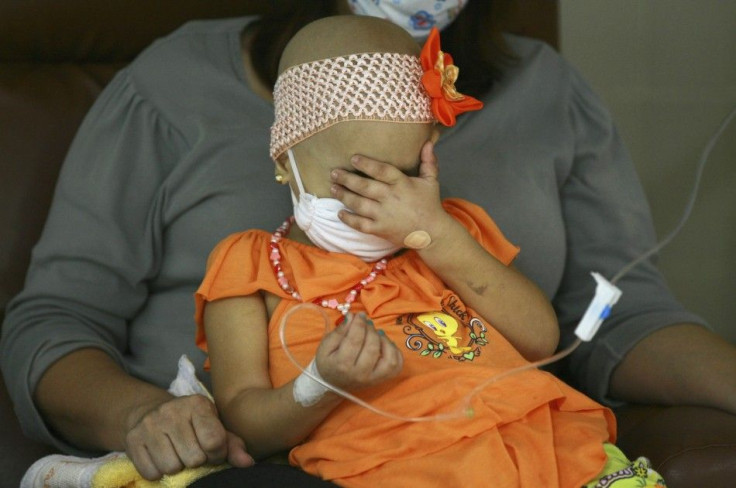Chemotherapy Boosts Tumor Growth In Some Cancers: STUDY

Chemotherapy treatment for certain types of cancer might actually make tumors grow, a study revealed on Sunday.
Scientists in the U.S. who found the "completely unexpected" finding are saying that the treatment triggers the healthy body cells near the tumor to produce a protein that helps the disease resist the treatment, according to the Daily Mail.
The shocking discovery is ultimately suggesting that certain forms of chemotherapy are hurting some patients more than they are helping them.
Researchers believe that negative results from chemotherapy happen when the drug reacts with healthy connective tissue called fibroblasts.
Lab experiments found the drugs damaged DNA and made the fibroblasts produce 30 times more of a protein called WNT16B which promotes cancer cell survival, AFP reported.
"The increase in WNT16B was completely unexpected," study co-author Peter Nelson of the Fred Hutchinson Cancer Research Center in Seattle told AFP.
The protein that was produced encouraged prostate tumors to grow and become immune to chemotherapy.
"WNT16B, when secreted, would interact with nearby tumor cells and cause them to grow, invade, and importantly, resist subsequent therapy," said Nelson.
"Cancer cells inside the body live in a very complex environment or neighborhood," Dr. Peter Nelson told the Daily Mail. He's a lead scientist at the Fred Hutchinson Cancer Research Centre in Seattle, U.S.
"Where the tumor cell resides and who its neighbors are influence its response and resistance to therapy," he explained.
But if fibroblasts could be blocked from the treatment then chemotherapy would then become effective, scientists reported in the journal Nature Medicine.
Researchers confirmed their results by looking at cancer cells from prostate, breast and ovarian cancer patients who were receiving chemotherapy treatments, AFP said.
Professor Fran Balkwill, who works at Cancer Research in the United Kingdom, explained to the Daily Mail that finding connections in other research has showed that "cancer treatments don't just affect cancer cells, but can also target cells around tumors."
Professor Balkwill said that the end result could be positive since the drugs stimulate healthy immune cells to attack the nearby tumors.
"This work confirms that healthy cells surrounding the tumor can also help the tumor to become resistant to treatment. The next step is to find ways to target these resistance mechanisms to help make chemotherapy more effective," Professor Balkwill added.
"Alternatively, it may be possible to use smaller, less toxic doses of therapy," Nelson concluded.
© Copyright IBTimes 2024. All rights reserved.






















